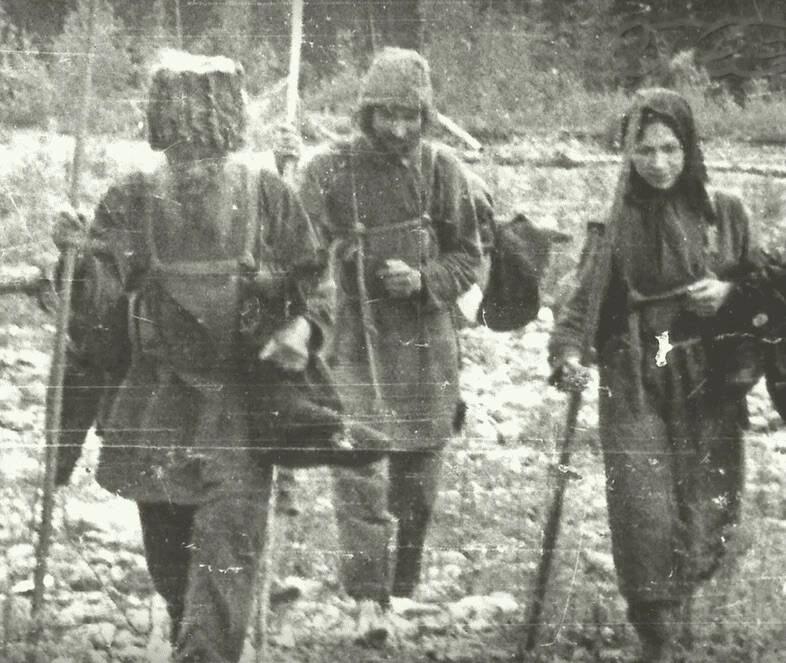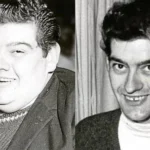In 1936, the Lykov family vanished into the deep forests of Siberia to escape religious persecution in Russia. For more than 40 years, no one knew they existed until a group of Soviet geologists stumbled upon them by accident in 1978.
The Hidden Family
While flying over a remote mountain, a helicopter pilot spotted a strange clearing high up in the taiga. It had long furrows, signs that people might be living there. But this spot was more than 150 miles from the nearest village. Curious, the geologists decided to investigate.
After hiking up the mountain they found a small log cabin beside a stream. It was dark, cold and smelled of damp earth.
The floor was covered with potato peels and pine-nut shells. It looked impossible for anyone to live there but they soon learned that a family had been surviving inside for over four decades.
Why They Left Civilization
The father, Karp Lykov, was part of a strict Russian Orthodox group called the Old Believers. When the Bolsheviks took over Russia in 1917, religion was banned and believers like Karp were hunted. In 1936, after his brother was killed by soldiers, Karp decided his family would flee everything and everyone.
He took his wife, Akulina, and their two children, Savin and Natalia, and disappeared deep into the Siberian taiga. They built a rough cabin and began a new life away from the modern world.
In the wilderness, they later had two more children, Dmitry in 1940 and Agafia in 1944. None of the younger children saw another human being until 1978.
Surviving the Siberian Cold
Life in the taiga was brutal. The family made clothes out of hemp cloth and shoes from birchbark. When their metal pots rusted away, they used birchbark containers instead, which couldn’t be placed on fire. Cooking became nearly impossible.
In 1961, disaster struck when a snowstorm destroyed their crops. The Lykovs had nothing left to eat. They chewed bark, straw and even leather shoes to survive. Akulina starved herself to save her children, dying so they could live.
But the family refused to give up. They planted a single rye seed and slowly rebuilt their crops. “We ate the rowanberry lea, roots, grass, mushrooms, potato tops, and bark,” Agafia remembered. “We were hungry all the time. Every year we held a council to decide whether to eat everything up or leave some for seed.”
The Geologists’ Arrival
When the geologists first met them, the Lykovs were eating potato patties mixed with ground rye and hemp seeds. The scientists offered food but the family refused, saying they weren’t allowed to eat such things. When asked if he had ever eaten bread, Karp replied, “I have. But they have not. They have never seen it.”
Eventually, they accepted one gift—salt. Later on, they took other small items like knives, forks, grain, pens, paper and a flashlight.
The scientists told Karp about all the things that had happened in the 42 years they’d been gone—World War II, space travel, and the rise of modern technology. Karp was shocked to hear about another war. “What is this, a second time, and always the Germans,” he said.
The geologists even showed them a portable television. Although the family thought it was sinful, they couldn’t help but stare in amazement. “The old man prayed afterward,” geologist Yerofei Sedov said, “diligently and in one fell swoop.”
Still, the Lykovs refused to leave their mountain.
Tragedy Strikes Again
In 1981, just a few years after the discovery, three of the children, Savin, Natalia, and Dmitry died within days of each other. When Dmitry fell ill with pneumonia, the geologists offered to fly him to a hospital. But he refused. “A man lives for howsoever God grants,” he told them.
Some thought the family caught diseases from outsiders but journalist Vasily Peskov, who wrote Lost in the Taiga in 1992, said the deaths were due to kidney failure.
After their deaths, the geologists begged Karp and Agafia to return to civilization but they wouldn’t. They said they were meant to live as their faith guided them. Karp died in 1988, leaving Agafia as the only survivor.
Agafia’s Life Alone
“When he died, I had nobody left to help me or to rely on,” Agafia told Vice in 2013. “I cut firewood myself.”
Even though she was alone, she didn’t leave the forest. The geologist Sedov later returned to live nearby after losing a leg to gangrene. Agafia wasn’t impressed with his company. “Yerofei is a waste,” she said. “Nobody needs him. He is not a helper. He needs to be helped.”
Despite her complaints, the two would sometimes sit together and listen to the radio until Sedov died in 2015.
In January 2016, at the age of 71, Agafia was flown to a hospital to treat a leg problem. Once she recovered, she went back to her cabin in the taiga—the only home she had ever known.
Sources
https://www.mentalfloss.com/history/karp-lykov-russian-family-secluded-from-civilization-40-years
https://www.mirror.co.uk/news/world-news/lykov-family-cut-off-from-civilisation-for-40-1588278



